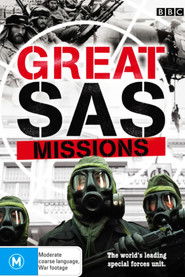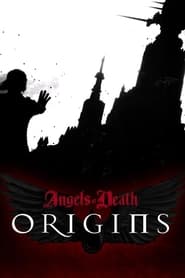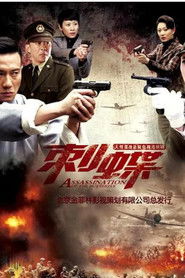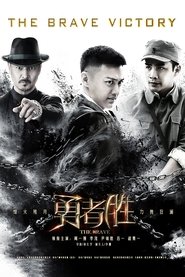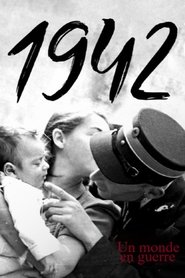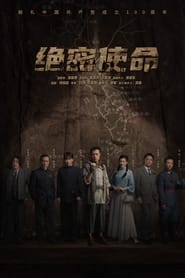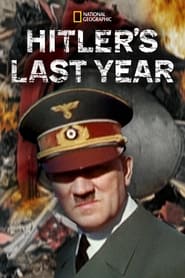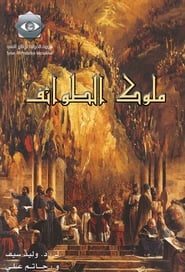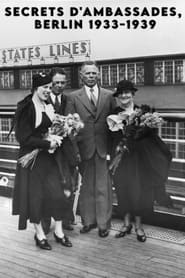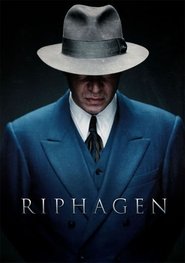War Politics TV Series - Page 80
-
Great SAS Missions
2004
Great SAS Missions
2004
star 7Over the past 60 years Britain's Special Air Service regiment has carried out a wide variety of clandestine missions - from deep-penetration raiding to hostage release operations - which have made it respected and feared for its professionalism and daring. The SAS prides itself on doing its work in the shadows, never allowing any publicity and never claiming credit for any of its extraordinary achievements. But, over the years, sufficient information has emerged for a picture of the regiment's exploits to be clear. This series uses interviews with former members of the SAS; detailed and painstaking reconstructions; and cutting edge 3-D graphics to recreate seven great missions which show why the SAS is today regarded as the world's leading special forces unit. -
Wali Songo
2003
-
Angels of Death: Origins
2022
star 6.5Based on the series Angles of Death, showing how the crew came about, and adding extra details to previous characters in the Angles of Death show -
铁血军歌
2016
铁血军歌
2016
-
刺蝶
2014
刺蝶
2014
-
谍变1939
2010
谍变1939
2010
-
The Brave Victory
2018
The Brave Victory
2018
During a time of war, a man joins the Communist party and starts on a road to revolution. In the year 1946 when the Nationalists and the Communists were engaging each other's forces in Dongbei, bandits have become a serious problem and caused much suffering among ordinary citizens. Yang Fenghuo is an anti-Japanese occupation hero who has retired from service. He and Gong Wantang are blood brothers and rivals in love, but Gong Wantang is the leader of the bandits. Song Yi is a military man on a mission to bring down the bandits which leaves Yang Fenghuo with a difficult dilemma as he has to choose between patriotism and loyalty to an old friend. -
Враг у ворот
2024
Враг у ворот
2024
-
Jue Mi Shi Ming
2021
Jue Mi Shi Ming
2021
In order to support the Central Soviet Area in breaking the Kuomintang’s military "encirclement and suppression" and economic blockade, the Central Committee of the Communist Party of China decided to establish a red communication line from Shanghai to the Soviet Area via Hong Kong and Shantou. Zou Zuo Ren is the head of the Bogongao station of the transportation line. Together with other large, medium and small transportation stations, he is carrying out the top-secret mission of transporting personnel and scarce supplies to the Soviet area and also transporting funds and intelligence from the Soviet area to the Shanghai Party Central Committee. Under the leadership of Zou Zuo Ren, the traffic men battled wits with the enemy. -
Hitler's Last Year
2015
Hitler's Last Year
2015
star 5.4The story of the last year of the war in Europe, from the D-Day landings in Normandy in June 1944 to the dual German surrender, first in Reims then Berlin, in May 1945. Eleven months of unprecedented combat.This was the deadliest year of WW2. -
Geheime Reichssache
1988
Geheime Reichssache
1988
Berlin 1937/38: Adolf Hitler strives for war. The leadership of the Wehrmacht stands in his way. But he gets rid of his opponents by plotting against the Reich War Minister Werner von Blomberg - he had married a prostitute - and the Chief of Staff of the Army Werner von Fritsch - he was homosexual. -
Kings of Sects
2005
Kings of Sects
2005
star 5.6The series follows the rupture of Andalusia into many warring states, which allowed the northern Kingdom of Castile to expand its borders and take control. -
天阵
2010
天阵
2010
-
Bombardment
2009
Bombardment
2009
“Wednesday, March 24, 1999, 7:45 p.m. Bombs and cruise missiles are falling on the Federal Republic of Yugoslavia; the NATO Pact operation “Mercy Angel” has begun. There will be no mercy for the citizens of the Federal Republic of Yugoslavia for 78 days. -
The Whistleblowers of WW II - Ambassadors in Berlin
2021
star 8In July 1933, a few months after Hitler seized power, William E. Dodd arrived in Berlin. His appointment as ambassador of the United States of America by President Roosevelt came as a surprise. -
Kamp Waes
2019
-
My Friend, the Enemy
2022
My Friend, the Enemy
2022
star 5Just what is it to be an orbit with four different poles? The four different poles — Nick, Wan, Beam, and Wayu — continuously circle around each other, repeatedly clashing and burning in the fire of the collision. However, all four sides are relentless, revelling in the pain and pleasure of hatred and competition... and perhaps, even love. -
肖劲光大将
2003
肖劲光大将
2003
-
Riphagen
2017
